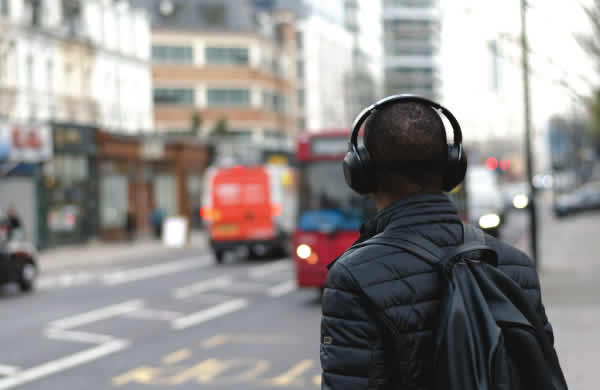To Speak, To Swallow, or To Assimilate? Navigating Racism as an African Abroad

For many Africans, the dream of living abroad is wrapped in promise. The dream of a better education, higher-paying jobs, safer environments, and global exposure. But this dream often collides with a harsh reality and that is the encounter with racism.
Whether subtle or blatant, racism forces Africans into a constant negotiation. Should they speak up and risk backlash in a country that is not theirs? Swallow it and preserve their peace? Or assimilate, reshaping themselves to gain a fragile acceptance? Each choice carries its own cost, and navigating these options are one of the most unspoken struggles of life outside the continent.

A Different Encounter with Racism
Unlike African-Americans or Afro-Caribbeans, whose histories are deeply rooted in systemic racism, many Africans step into foreign countries with different expectations. They often see themselves first as Nigerians, Ghanaians, or Kenyans and not necessarily as “Black.” But quickly, they discover that in many Western amd Eastern contexts, skin colour and hair texture precedes nationality.
Microaggressions begin to appear. They begin to get comments about their accents, assumptions that they are less competent, or jokes about if they have water in their countries or live in mud huts. In their workplaces, they face more barriers than their peer group. In schools, they may be profiled as “less articulate” or “too aggressive.” Even simple tasks like renting apartments can be riddled with coded rejections.
For many Africans, the encounter with racism abroad is their first deep personal experience of being reduced to race which is a disorienting and often painful awakening, especially when they are coming from a place where they are never faced with questions and segregations.
The Temptation to Swallow It
Faced with these experiences, some choose silence. They swallow the sting of microaggressions, the awkward stares, the unfair promotions. They tell themselves: “This is not my country; I cannot fight their system.”
Swallowing racism can be a survival tactic. For those on student visas or work permits, rocking the boat might mean risking opportunities they worked so hard to secure. A single complaint about discrimination could be dismissed as “overreacting” or “not fitting in.” Worse, it could jeopardize one’s career.
But silence has a cost. The unspoken anger festers. The unchallenged stereotypes pile up.
Over time, swallowing racism can lead to internalised hurt, erosion of self-confidence, and a painful acceptance of injustice as “normal.” What seems like self-protection becomes a slow form of self-erasure.
The Call to Speak Up
Social Insight
Navigate the Rhythms of African Communities
Bold Conversations. Real Impact. True Narratives.
On the other side lies resistance, the decision to speak up. Speaking against racism affirms dignity and pushes back against the normalisation of discrimination.
For some Africans, this is non-negotiable. They confront offensive remarks head-on. They file formal complaints. They join protests or take to social media to tell their stories.
Speaking up carries power. It challenges the comfort of silence that racism thrives on. It signals to younger Africans or newcomers that they are not alone. It creates room for change, however small.
But it also carries risks. Speaking up may cost job promotions, friendships, or even physical safety. Africans who confront racism may be labeled “angry” or “difficult.” Their credibility may be questioned. For every act of bravery, there is often a backlash.
Still, silence ensures nothing changes. Speaking up at least plants seeds of awareness and resistance.
The Pressure to Assimilate
The third option is assimilation which involves reshaping oneself to be “acceptable.” For Africans abroad, this often starts innocently — softening an accent so colleagues “understand better,” shortening names so teachers or bosses won’t stumble, laughing at jokes that sting.
Soon, assimilation extends further. Dressing differently. Avoiding cultural foods in public. Over-performing at work to counter stereotypes. In the search for belonging, assimilation offers the delusion of inclusion.
But the cost is steep. Assimilation often demands the erasure of cultural authenticity. It asks Africans to trade pieces of themselves for conditional acceptance. And the acceptance is fragile.
And the fact stands that no matter how perfectly one assimilates, skin colour, the foundation of discrimination, remains visible. The reality is that assimilation may smooth daily interactions but rarely dismantles systemic racism.

Choosing a Path: Between Resistance and Survival
So which path is right: to speak, to swallow, or to assimilate? The truth is, there is no single answer. Context can, also, not be ignored. For some, survival requires swallowing hurt in the short term. For others, assimilation may feel necessary to get through certain spaces. For many, speaking up is a moral imperative.
What matters is that Africans abroad recognize the stakes of each choice. Silence may preserve short-term peace but deepens long-term inequality. Assimilation may ease entry into circles but can slowly corrode one’s identity. Speaking up carries risks but also the possibility of progress.
Perhaps the most sustainable path lies in balance: protecting oneself in hostile environments while also building collective power to resist. No individual can dismantle racism alone, but solidarity makes resistance less costly.
Social Insight
Navigate the Rhythms of African Communities
Bold Conversations. Real Impact. True Narratives.
The Way Forward
For Africans abroad, the path forward lies in collective strategies. Student associations, diaspora organizations, and advocacy groups provide safer spaces to share experiences and organize responses. Storytelling through social media, art, and literature reclaims narratives that racist systems try to silence.
Africans also need solidarity with African-Americans, Afro-Caribbeans, and other Black communities. While their histories differ, their struggles are similar. A divided Black identity benefits racism, however, a united one challenges it.
Most importantly, Africans abroad must resist the idea that belonging requires erasure. They do not need to strip away their accents, names, or cultures to be accepted. Their worth does not hinge on mimicking whiteness. Belonging should never be purchased at the cost of dignity.
Dignity Over Negotiation
Racism abroad presents Africans with a difficult options: to speak, to swallow, or to assimilate. Each choice carries costs, and none is without compromise. Yet, silence and assimilation cannot dismantle injustice.
The challenge for Africans abroad is to navigate these choices with courage and wisdom, speaking when safe, resisting erasure, and building collective voices.
Because in the end, dignity should never be negotiable. And the goal should not be mere acceptance into spaces built on exclusion, but the transformation of those spaces into ones where every African, every Black person, belongs unapologetically.
Recommended Articles
There are no posts under this category.You may also like...
Super Eagles' World Cup Dreams on the Brink: Nigeria Faces Blame and Doubt
)
The Nigerian Super Eagles' 1-1 draw with South Africa in a FIFA World Cup qualifier has jeopardized their qualification ...
Boxing Titans Collide: Canelo vs. Crawford Superfight Dominates Headlines

Boxing titans Canelo Alvarez and Terence Crawford are set for a "once-in-a-generation" undisputed super middleweight cha...
Creative Arts Emmys Unleashed: 'Severance' Stars Make History Amidst 'Penguin' & 'Studio' Dominance!

The Emmy Awards continue to see a trend of 'sweeps,' with certain shows dominating multiple categories, driven by the Ac...
Critics Warn: 'The Conjuring: Last Rites' Unleashes Final Spine-Tingling Horror!

The Conjuring: Last Rites explores the alleged final chapter for paranormal investigators Ed and Lorraine Warren, as the...
Ed Sheeran's Shocking UK Exit Announcement Sparks Global Frenzy Before Swift Clarification

Ed Sheeran confirmed a temporary move to the United States with his family for an upcoming tour, clarifying that it's no...
Zimbabwean Rapper Holy Ten Dares President's Sons in Explosive Public Spat

Zimbabwean hip-hop artist Holy Ten has launched a series of explosive online rants, accusing President Emmerson Mnangagw...
Explosive Allegations: Women Detail Assaults in Alexander Brothers Case, Lawyers Deny '0 Evidence'!

Luxury real estate moguls Oren, Alon, and Tal Alexander face sex trafficking charges and accusations of sexually assault...
Breaking: Taylor Swift & Travis Kelce's Romantic Journey Culminates in Shock Engagement!

NFL star Travis Kelce has offered a candid look into his surprisingly normal, yet highly public, two-year romance with T...